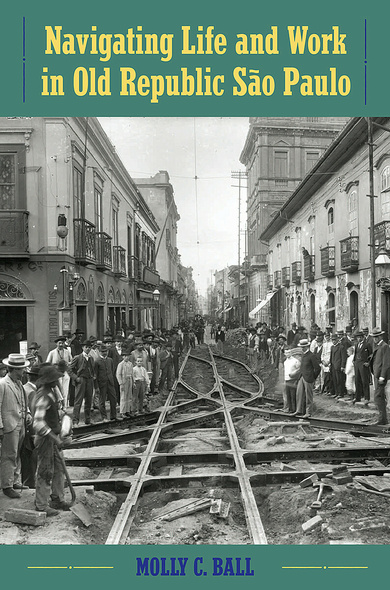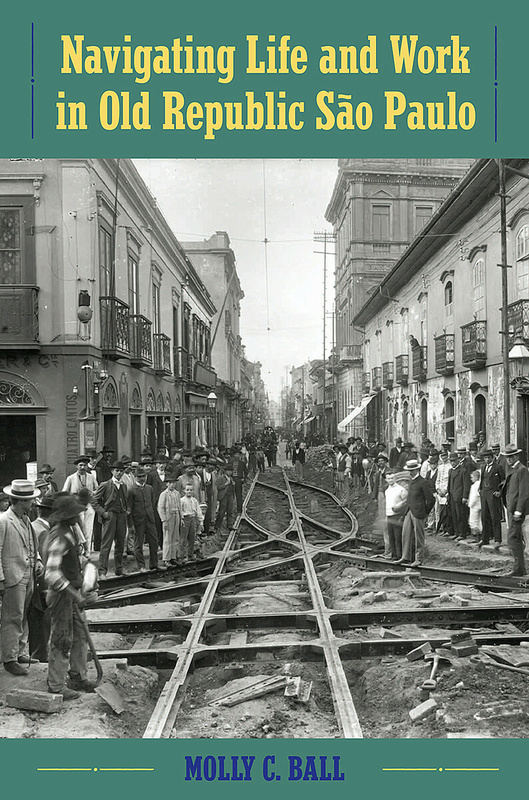
This volume examines the experiences of São Paulo’s working class during Brazil’s Old Republic (1891–1930), showing how individuals and families adapted to forces and events such as urbanization, discrimination, migration, and World War I. In this unique study, Ball combines social and economic methods to present a robust historical analysis of everyday life along racial, ethnic, national, and gender lines.
Drawing from both statistical data and primary sources such as letters, newspapers, and interview transcripts, Ball demonstrates how the nation’s coffee boom drew immigrants from Italy, Portugal, Germany, Lebanon, and northeastern Brazil. She examines the ways these workers responded to inflation; fluctuating immigration patterns; and labor market discrimination, which especially affected Afro-Brazilians, Portuguese immigrants, and women. This analysis emphasizes the family-centered nature of immigration to São Paulo in comparison with other immigrant destinations such as Buenos Aires and New York City.
Ball’s rich scholarship considers how World War I exacerbated tensions and divisions within São Paulo’s working class, which resulted in a deeply segmented labor market by the time Getúlio Vargas came to power in 1930. Shedding light on many reasons why Brazil experienced slower industrial innovation than other countries during this era, Ball provides invaluable context for the region’s continued high inequality and sociocultural imbalances.
Molly C. Ball is a history lecturer at the University of Rochester





